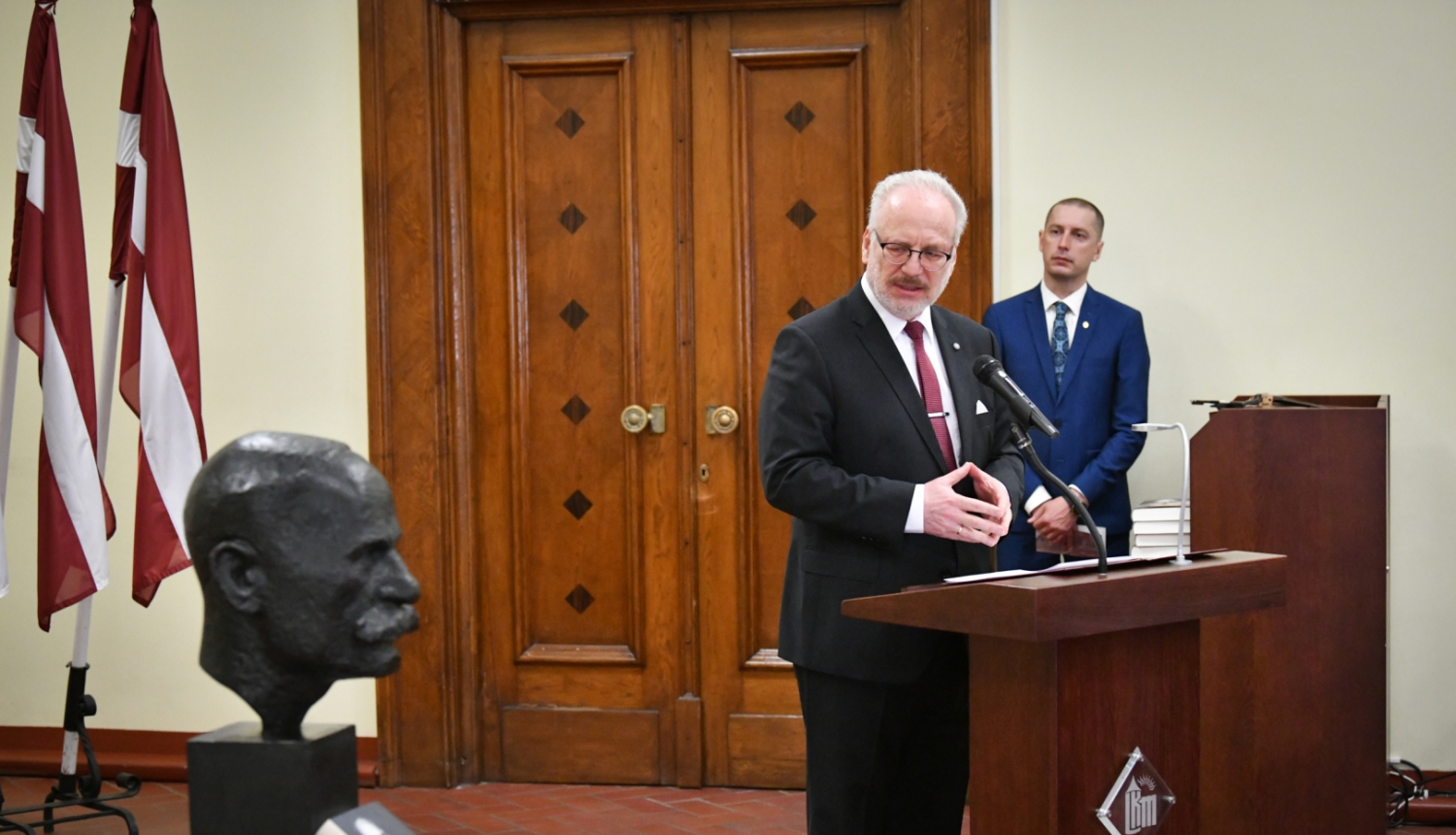Dear guests, family members, authors and publishers,
80 years after General Kārlis Goppers’ demise, you have completed a major project of preparing an extensive publication about his life. Congratulations! It took 10 years to achieve this amazing result, and we have an outstanding book about patriot, democrat and soldier who served Latvia on our hands today. Many Latvians contributed to formation of Latvian State before the occupation, but General Kārlis Goppers stands out among them as a unique figure that combined two roles. He was a professional soldier and also a volunteer whose public activities included leading the Latvian scout organisation.
Under the Tsar’s rule, he joined Russian Imperial Army in late 19th century to become a professional soldier. He quickly progressed through the ranks thanks to his exceptional ability to lead others. One cannot become a general without vital people skills. He was one of such leaders, which helped him to succeed.
Kārlis Goppers fought in the World War I together with regular forces of Russian Imperial Army. Although he wanted to join Latvian Riflemen, he was not allowed to transfer, so he did not fight with Latvian Riflemen. Then the February Revolution happened, followed by October Revolution, and Kārlis Goppers, like others, saw a clear connection between both revolutions in a political sense. He saw Tsarist Russia collapsing, he foresaw the demise of monarchy. He also saw new, even more vicious dictatorship emerge from the rubbles of the monarchy, so he used all his professional prowess and military skills and joined the side fighting against the Communist regime. He was one of the leaders of Yaroslavl Uprising in Russia.
We, of course, know the outcome of these historic events. The attempts to overthrow the new undemocratic regime failed. Together with some of the Latvian soldiers of Imanta regiment, he went through Siberia, through Far East, and ended up joining Latvian army where together with Latvian armed forces he fought for independence of Latvia and helped win the War of Independence.
He continued his military career as the commander of Riga garrison and lead Vidzeme division until his retirement in 1934. However, his heart belonged to scouts since founding of the Latvian State. He was the first and only president of the organisation. He devoted himself to this volunteer movement because he understood the value of scouts in social and political processes of Latvian State as a source for patriotic upbringing.
He also spent a lot of his free time with scouts and guides. His name was well known among those who kept the organisation running in exile after Latvia’s occupation. I myself have taken part in one of camps that was organised by young Latvian scouts and guides in exile who kept the organisation going until Latvia became free again and it moved back to Latvia.
There are many scout and guide organisations around the world. But Kārlis Goppers is probably the only president of the organisation anywhere in the world to be sentenced to death for what he did. He was executed in March of 1941. He continued to remain loyal to Latvia to his last breath. He is a martyr who sacrificed his life for Latvia and was punished for what he did for our state. In addition to being a professional soldier and public figure, he remains in the collective memory of Latvian people as a truly outstanding figure.
Kārlis Goppers has left deep trail in the history of Latvia. It is nice to also have this book that can teach us more about his life. Once again, thank you all for this book. I want to thank relatives, authors and publishers. Thank you!





